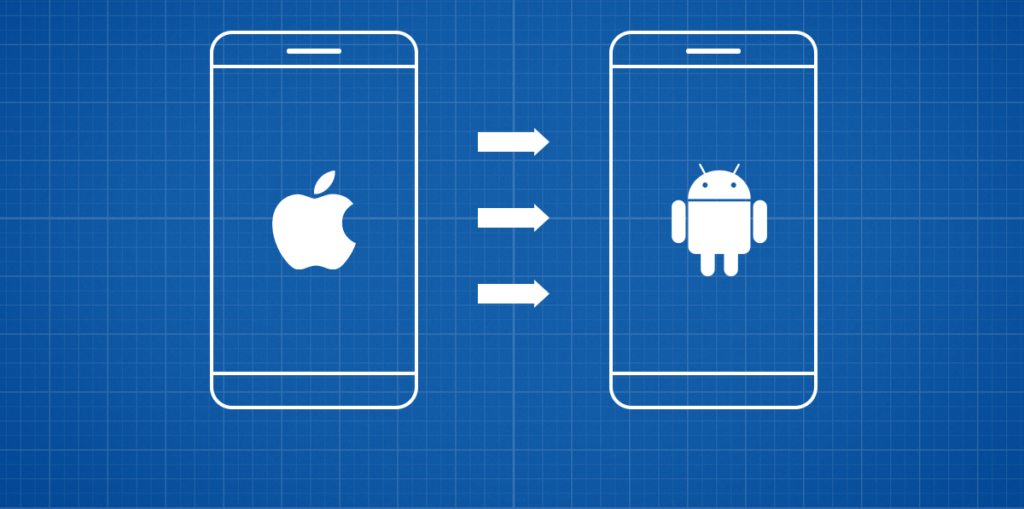Table of Contents
The two main competitors in the mobile development market are definitely iOS and Android. And when you are ready to spend a fortune on mobile development, you have to make a decision as to which platform to select first, unless you have budgeted to cover both. We have attempted to gather several tips that would help you with making a decision.
1) Target Audience
First of all, you need to ask yourself who will be using your application. Next, you need to look into how much of your target audience is using iPhones and how many are on Android. When answering this question, it is best to focus on who the people are that prefer iOS and what kind of people prefer Android. This will guide you as to which platform you should target.
The Big Picture on Android users
- Includes people that want to have affordable options and plenty of brand choices
- Includes people who love the freedom to configure and customize everything themselves. It has virtually no restrictions.
- Android is more common for men.
- Only 8% of Android users have a higher education. There are plenty of affordable options and it targets a wider audience.
- Android users also have above average incomes, but have less money available to spend.
- Android users typically have occupations in retail, food, manufacturing, and other similar industries. Techs and programmers also lean towards Android. A big share of users tends to follow technology news and is keeping up-to-date with the latest innovations.
- Android users are more inclined to changing their phones so it doesn’t matter as much when something becomes difficult. Only 37% of Android users keep their phone compared to 67% of iOS users.
The Big Picture on iOS users
- Includes people that want or need to confirm their value by using the brand’s products.
- Includes people that have difficulty configuring mobile phones. It provides just “enough” options and freedom in settings.
- Women like iOS more in comparison to boys, leading to plenty of accessory and design options that lead to brand importance.
- 27% of iOS users have a higher level of education.
- iOS users usually have higher incomes or have more money available to spend.
- With occupations, iOS users are often managers, directors and people running businesses.
- It won’t be a surprise if we say that iOS users experience difficult times with changing their phone.
This is only the smaller picture on the average users for iOS and Android, but you also need to consider their country and the nature of your app. For instance, Japan might drastically differ from the USA.
2) Monetization or Revenue Generation
The way you are going to make money from your Android application or iOS app is also of extreme importance. And it’s highly dependent on what each platform has to offer.
- According to statistics, the iOS platform has more active users who are also more inclined to purchase applications. So if you want to sell your app, iOS users are more likely to buy it. Paying for Android apps is not that common among users so it’s better to select another monetization approach there. Subscription-based applications are also preferred by iOS users while Android ones do not really like this approach.
- The most common Android monetization is ads. Yes ads in the apps are annoying, but it looks like Android users accept it. If we speak about certain types of applications (like games, learning apps, etc.), then you should know that Android users are likely to take advantage of freemium type of monetization. They can use an app for free, but will eagerly buy some items in it (like coins or other trophies to proceed to the next level in a game, or earn a reward in learning app).
- At the same time, Apple has strict guidelines that make you go with their native payment system, known as In App Purchase. Google and Android provide more options when it comes to payment systems.
3) Development Possibilities
With iOS being a more closed platform, it has certain limitations into what can be done with software and hardware. For example, you will never develop an application that disables the Home button. You will never block a person from using the phone while driving unless Apple itself decides to do this. But Android is more agile in this. Being a free platform and having thousands of markets gives it unlimited possibilities for developers, which means more available apps and more ways to make your phone useful. iOS always said that they focus on quality by limiting developers from submitting the apps to Apple Store, even for ridiculous reasons like “We already have lots of similar apps on the Apple Store and even if your app is better, we can’t let it through.”
4) Timeline of Your Project
If you initiate app development, then probably you have certain time frames you would like to preserve. The timeline of the project should be taken into account when you choosing for what mobile operating system to develop your app. Let’s take Android, it is a well known fact that many various devices are running it (starting with the simplest phones and ending with tablets) which means that there is a huge variety of screen sizes to adapt your app to. Also users can have the devices that are running older versions of Android which also influences the development process and makes it more complex and long. So the release cycle for Android app will take much longer than for an iOS app.
Now as to the iOS devices, actually they are getting less standardized with each new model of iPhone. For example now iOS developers are dealing with the new screen sizes that were added to iPhone X and the latest models. This created some constraints with UI. And still it is more easier and faster to build and app for iOS device than for Android one. However, it takes longer to submit an app to a store.
5) Development Cost
The budget is one of the decision making points we could not omit when writing this article. You definitely understand that the price will depend directly on the complexity of your application and desired set of features. But will it be the same for iOS and Android devices if we speak about apps of the same complexity?
We can say that usually the price for Android development are higher than for iOS. Why is that so? Well, as we’ve already mentioned many devices are powered with Android OS and all those devices have different versions of OS and various screen sizes, and this complicates the development. While with iOS you can focus more on the latest models of devices and support the latest versions of operating system. Speaking from developers prospective, this factor allows to reduce the cycle of development and testing and concentrate on improving the app, making it more productive for newer devices.
When to choose iOS or Android first
Taking into account all mentioned above, we’d like to highlight some points helping you to decide for which platform you should develop your app first. Of course it would be perfect if you could reach both Android and iOS users and increase your overall revenue from a solution, but it is okay to start with one platform which is better for your particular needs. There is also a possibility to convert an iOS app into Android and vice versa with the appropriate tech possibilities.
So iOS app can be a good idea for you if you:
- want to get more income per user and target at people involved in business;
- value your users data security and privacy;
- don’t need to customize a lot of things;
- need to build your solution fast without any complications.
As to Android, develop your solution for this operating system in case you:
- want your app to be recognized and used by wider audience;
- need more customization options for your solution;
- don’t want to wait weeks until your app is submitted to the store.
Conclusion
When it gets down to choosing what platform to develop your app on, the right answer is on both. But hopefully, our tips and recommendations will help you to make the right decision. If you are still hesitating though, feel free to turn to our team for help. We’ll make sure we analyze the market and recommend the better platform for you.





